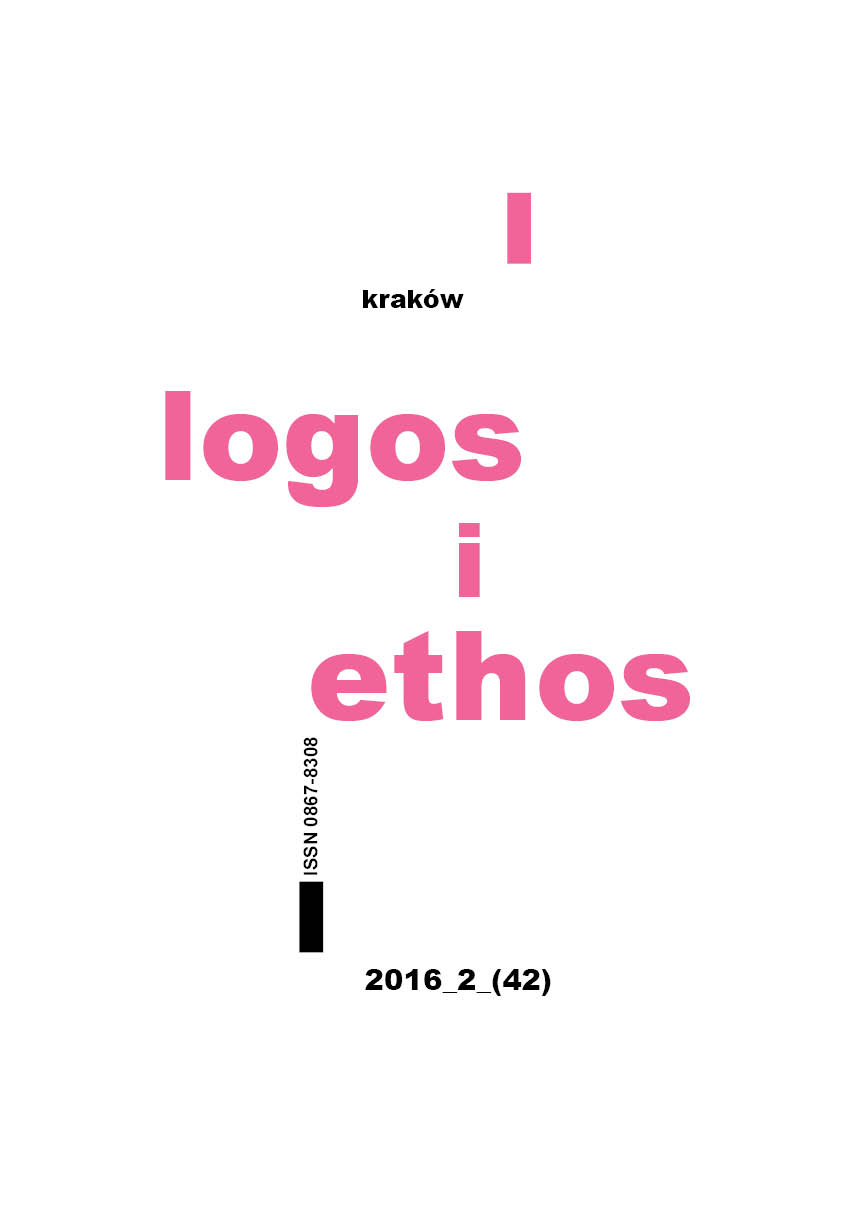Die popperschen Herausforderungen für den Materialismus
DOI:
https://doi.org/10.15633/lie.1916Słowa kluczowe:
K. R. Popper, Geist, Intentionalität, Materialismus, kausale Beziehung, Erklärung, Argument, rationale BegründungAbstrakt
Das Ziel dieses Textes ist die Darstellung und Analyse von zwei Argumenten gegen den Materialismus, die durch Karl R. Popper inspiriert sind. Der Leitgedanke dieser Argumente erschien ursprünglich in seinem kurzen Artikel Language and the body-mind problem und wurde später in The self and its brain wiederholt. Nach dem ersten Argument kann kein materialistischer Standpunkt, der eine kausale Theorie des Geistes nach sich zieht, die Natur einer rationalen Begründung von Überzeugungen erklären, und dementsprechend verliert der materialistische Standpunkt selbst seine rationale Begründung. Mit dem zweiten Argument wird versucht zu beweisen, dass es keine rein materialistische, kausale Erklärung der Intentionalität gibt. Im Text werden einzelne Prämissen der genannten Argumente rekonstruiert und anschließend analysiert. Am Ende erfolgt eine kurze Beurteilung der besprochenen Argumente.Bibliografia
Baker L. R., Metaphysics and mental causation, [in:] Mental causation, ed. by J. Heil, A. Mele, Oxford 1993, S. 75−96.
BonJour L., Against materialism, [in:] The waning of materialism, ed. by R. C. Koons, G. Bealer, Oxford 2010, S. 3−23.
Feser E., Philosophy of mind. A beginner’s guide, Oxford 2006.
Feser E., Aristotle on method and metaphysics, New York 2013.
Feser E., Scholastic metaphysics: a contemporary introduction, Piscataway 2014 (Editiones Scholasticae).
Feser E., Hayek the cognitive scientist and philosopher of mind, [in:] The Cambridge companion to Hayek, ed. by E. Feser, Cambridge 2006, S. 287−314.
Feser E., Hayek, Popper, and the causal theory of the mind, [in:] Hayek in mind: Hayek’s philosophical psychology, ed. by L. Marsh, Bingley 2011, S. 73−102 (Advances in Austrian Economy, 15).
Gertler B., In defense of mind-body dualism, [in:] Reason and responsibility. Readings in some basic problems of philosophy, ed. by J. Feinberg, R. Shafer-Landau, Boston 2007, S. 303−315.
Gibb S. C., The causal closure principle, „The Philosophical Quarterly“ 65 (2015), S. 626−647.
Gibb S. C., Defending dualism, „Proceedings of the Aristotelian Society“ 115 (2015), S. 131−146.
Grygianiec M., Steps towards anti-physicalism, „Logos“ 89 (2016), S. 7−20.
Hüttemann A., Einige Bemerkungen zum Prinzip der kausalen Abgeschlossenheit des Physischen, [in:] Die Suche nach dem Geist, Hrsg. J. Michel, G. Münster, Münster 2013, S. 35−53.
Kim J., Mind in a physical world. An essay on the mind-body problem and mental causation, Cambridge, Mass. 1998.
Lowe E. J., A Defence of non-Cartesian substance dualism, [in:] Psycho-physical dualism today. An interdisciplinary approach, ed. by A. Antonietti, A. Corradini, E. J. Lowe, Lanham 2008, S. 167−183.
Lycan W., Giving dualism its due, „Australasian Journal of Philosophy“ 87 (2009), S. 551−563.
Meixner U., The two sides of being. A reassessment of psycho-physical dualism, Paderborn 2004.
Meixner U., Against physicalism, [in:] Contemporary dualism. A defense, ed. by A. Lavazza, H. Robinson, London 2014, S. 17−34.
Montero B., Varieties of causal closure, [in:] Physicalism and mental causation, ed. by S. Walter, H.-D. Heckmann, Exeter 2003, S. 173−187.
Poczobut R., Między redukcją a emergencją. Spór o miejsce umysłu w świecie fizycznym, Wrocław 2009.
Popper K. R., Language and the body-mind problem. A restatement of interactionism, [in:] Proceedings of the 11th International Congress of Philosophy, Vol. 7, Brussels 1953, S. 101−107.
Popper K. R., Natural selection and the emergence of mind, „Dialectica“ 32 (1978), S. 339−355.
Popper K. R., Conjectures and refutations: the growth of scientific knowledge, London–New York 2002.
Popper K. R., Eccles J., The self and its brain, New York 1985.
Putnam H., Renewing philosophy, Cambridge 1992.
Wachter D. von, Why the argument from causal closure against the existence of immaterial things is bad, [in:] Science – a challenge to philosophy?, ed. by H. J. Koskinen, R. Vilkko, S. Philström, Frankfurt am Mein 2006, S. 113−124.
Pobrania
Opublikowane
Numer
Dział
Licencja
Autorzy publikujący w czasopiśmie udzielają jego wydawcy zgody o następującej treści:
- Autor zachowuje autorskie prawa majątkowe do utworu, a jednocześnie udziela wydawcy czasopisma zgody na jego pierwszą publikację w wersji drukowanej i wersji online na licencji Creative Commons Uznanie autorstwa 4.0 Międzynarodowe oraz zgody na wykonywanie opracowań, w tym przekładów.
- Autor ma możliwość udzielania zgody niewyłącznej na opublikowanie utworu w wersji, która ukazała się w czasopiśmie (np. zamieszczenia go w repozytorium instytucjonalnym lub opublikowania w książce), wraz z informacją o jego pierwszej publikacji w czasopiśmie.
- Autor może umieścić swój utwór online (np. w repozytorium instytucjonalnym lub na swojej stronie internetowej) jeszcze przed zgłoszeniem utworu do czasopisma.

